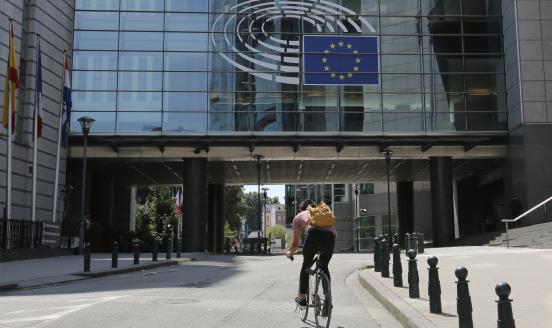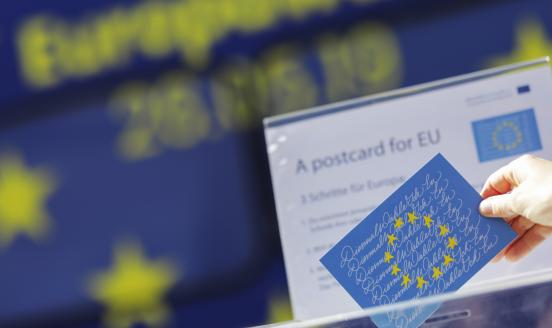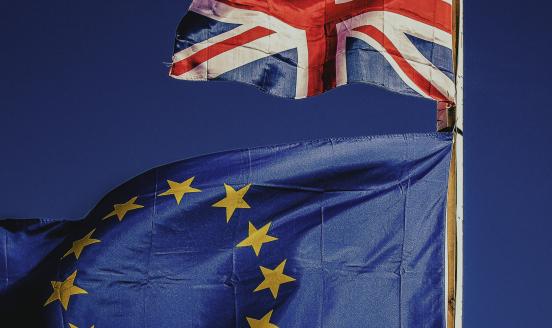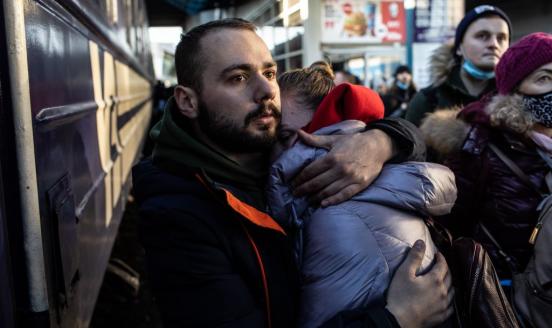UK political elite used poverty & immigration fears to secure leave vote
The bulk of UK Leave voters come from disadvantaged areas, and perceive immigration as a threat. But significant exceptions to this trend in England a
One of the dominant explanations of the UK’s Leave vote in the EU referendum is that the most disadvantaged parts of the country voted against EU membership to express their discontent against the ruling elite, as a headline in The Guardian recently read: ‘If you’ve got money, you vote in… if you haven’t got money, you vote out.’
The argument goes that the UK pays an excessive financial contribution to the EU, which could be spent on public services, and that the UK accepts too many EU citizens, who take jobs from British natives. In sum, the losers of European integration in the UK revolted against an EU considered to be responsible for this state of affairs: they voiced their discontent by casting a vote Leave.
The economic distress-immigration-EU connection was in part a conscious political construct used for electoral purposes
But a close examination of the referendum results with wealth levels (as seen through ‘declining cities’) and immigration levels shows that the link is not automatic. There are multiple exceptions. Some areas with high levels of immigration voted Remain, as well as some poorer cities. This suggests that the economic distress-immigration-EU connection was in part a conscious political construct used for electoral purposes.
Wealth and ‘declining cities’
The narrative connecting economic distress and vote Leave is partly confirmed when looking at the UK’s declining cities and their vote in the referendum. The Joseph Rowntree Foundation recently published a report on tackling city decline. The study outlines an index of ‘relative decline’ based on “changes in employment rates, levels of high-qualified workers, number and type of full-time jobs, net migration rates and population changes.”
The tables below show the 20 most struggling cities and the 20 cities faring best in the ranking of the 74 UK cities analysed in the report. The link between the economic distress of declining cities and vote Leave is clear. The first two most struggling cities, Rochdale and Burnley, massively voted Leave, at 60.1% and 66.6% respectively. The vast majority of these 20 cities voted Leave, sometimes by an impressive margin such as Hull (67.6%), Middlesbrough (65.5%) and Stoke (11th, 69.4%). At the opposite end of the spectrum, Oxford (70.3%), Edinburgh (74.4%), and Cambridge (73.8%) massively voted Remain.
But important exceptions arise. In the list of the most struggling cities, it is noticeable that Dundee, Glasgow and Liverpool overwhelmingly voted Remain (at 59.8%, 66.6%, and 58.2% respectively). It is also noticeable that Manchester (45th in the table) massively voted Remain at 60.4%.
At the opposite end, Milton Keynes, in spite of being at the top of the table of the best faring UK cities, voted Leave at 51.4%. It is also noticeable that the turnout of the most struggling cities was on average much lower than the turnout of the cities faring better economically.
A simple causal link between struggling cities and vote Leave is therefore difficult to draw.
A simple causal link between struggling cities and vote Leave is therefore difficult to draw. With a population of around 600,000, Glasgow is the fourth UK city, and is certainly not a negligible exception. Glasgow also has strikingly the lowest turnout of the ten biggest UK cities.
Immigration
Immigration is the other explanatory factor often advanced to explain the Leave vote. According to this narrative, immigration is responsible for the UK citizens’ economic distress, EU and non-EU migrants take the jobs away from British natives, and the EU is responsible for that immigration.
The UK’s Office for National Statistics provides a map of migration levels in the UK. Overall, 13% of the population was born outside the UK. The last columns of tables 1 and 2 show the percentage of non-UK born population in the UK cities mentioned above.
The alleged link between immigration and vote Leave shows multiple exceptions.
The alleged link between immigration and vote Leave shows multiple exceptions. Wigan, one of the UK cities with the smallest share of non-UK born population (4%), massively voted Leave (63.9%). So did Sunderland (5% non-UK born population, 61.3% Leave), and Blackpool (6% non-UK born population, 67.5% Leave). In these cases, it is difficult to see how such low levels of immigration could have posed any sort of economic distress.
But Nottingham has by far one of the largest shares of non-UK born population (22%), and voted Leave only by a small margin (50.8%). Glasgow and Dundee also stand out again, with their massive Remain vote combined with a share of non-UK born population on par with the UK average.
At the other end of the spectrum, the best faring UK cities have a greater share of non-UK born population, and voted Remain. Besides London, Oxford, and Cambridge, Reading (25% non-UK born population, 58% Remain) stands out. Only Peterborough, with 21% of the population not born in the UK, and a massive vote for Leave (60.9%), highlights a possible link between the level of immigration and the vote cast in the UK’s EU referendum.
The paradox is therefore that the areas with the smallest proportion of immigrants tended to vote Leave. This contradicts the claim that immigration put pressure on the local job market.
What conclusions can be drawn?
Two lessons can be drawn from these observations.
First, Scotland is clearly set on a different political and sociological path from England. The interpretation of the role and influence of the EU is different among all social groups. It is true that some English towns voted to Remain. Most obviously London, but also Manchester (60.4%), Liverpool (58.2%), and Newcastle by a small margin (50.7%). But these towns remain exceptions in England’s political landscape. All Scottish constituencies, by contrast, voted Remain, regardless of their wealth and immigration levels.
The wealth-immigration-EU link was used as a means to explain economic and social discontent.
Second, and deriving from the first, the link between wealth, immigration, and the UK’s EU participation appears to be a construct created and fed by part of the political elite. The wealth-immigration-EU link was used as a means to explain economic and social discontent.
Zsolt Darvas has argued that as UK unemployment is close to its lowest point since 1975, “it is hard to see how immigrants have taken away jobs of [UK] natives on a large scale.” Further to Zsolt’s point, the data analysed above show that the presence of immigrants did not automatically lead to a Leave vote. This means that it was the perception that immigration could be a problem that really influenced the vote.
Popular attitudes to immigration are markedly different in Scotland. Glasgow was the first UK city to welcome Syrian refugees, and is the Scottish city with the largest share of people born outside the UK. Until now, Scotland has accepted a third of the UK’s Syrian refugees. This did not prevent Glasgow in particular and Scotland in general from voting massively in favour of staying in the EU.
It is therefore difficult to see the Brexit vote as being exclusively about poverty, as indicated by cities’ decline, and immigration. This can be explained by the way that part of the political elite blamed the UK population’s economic distress on immigration, and conveniently used the EU as a scapegoat for this situation.



